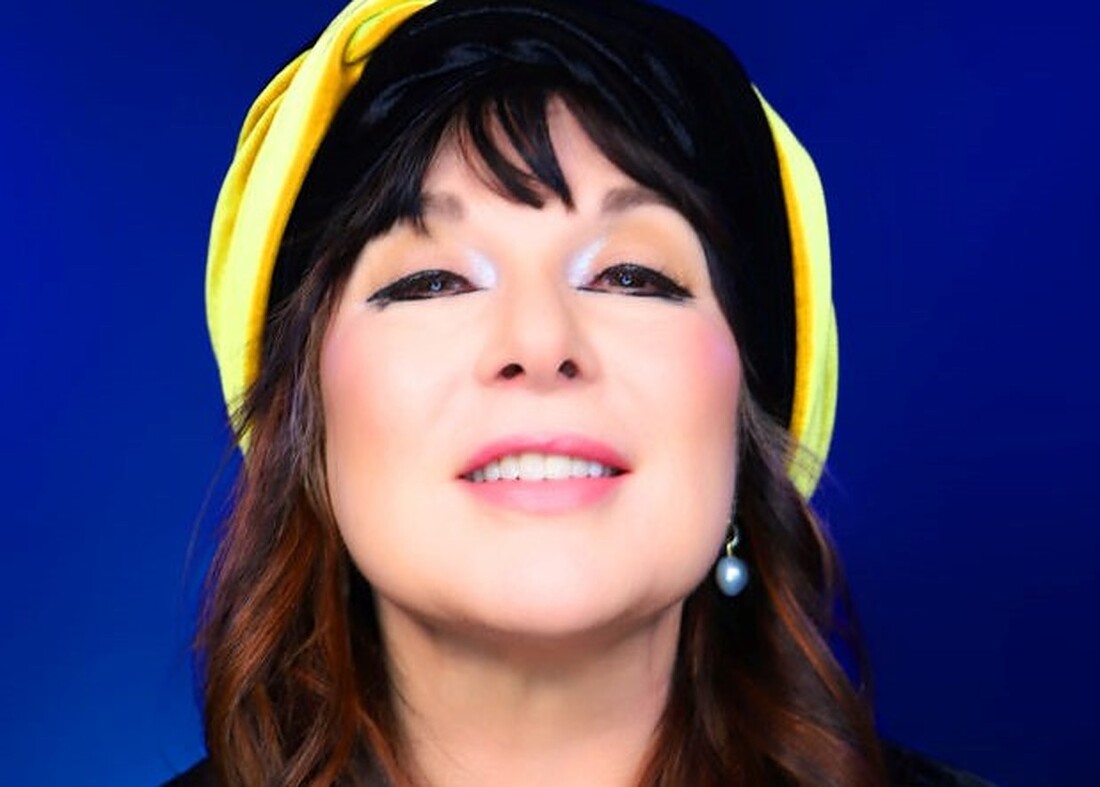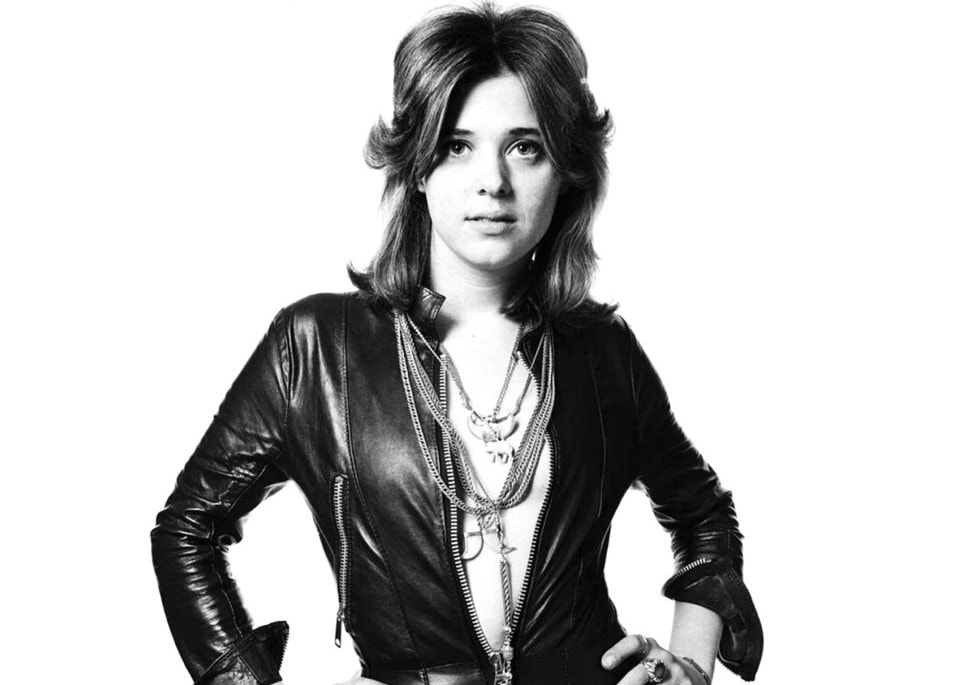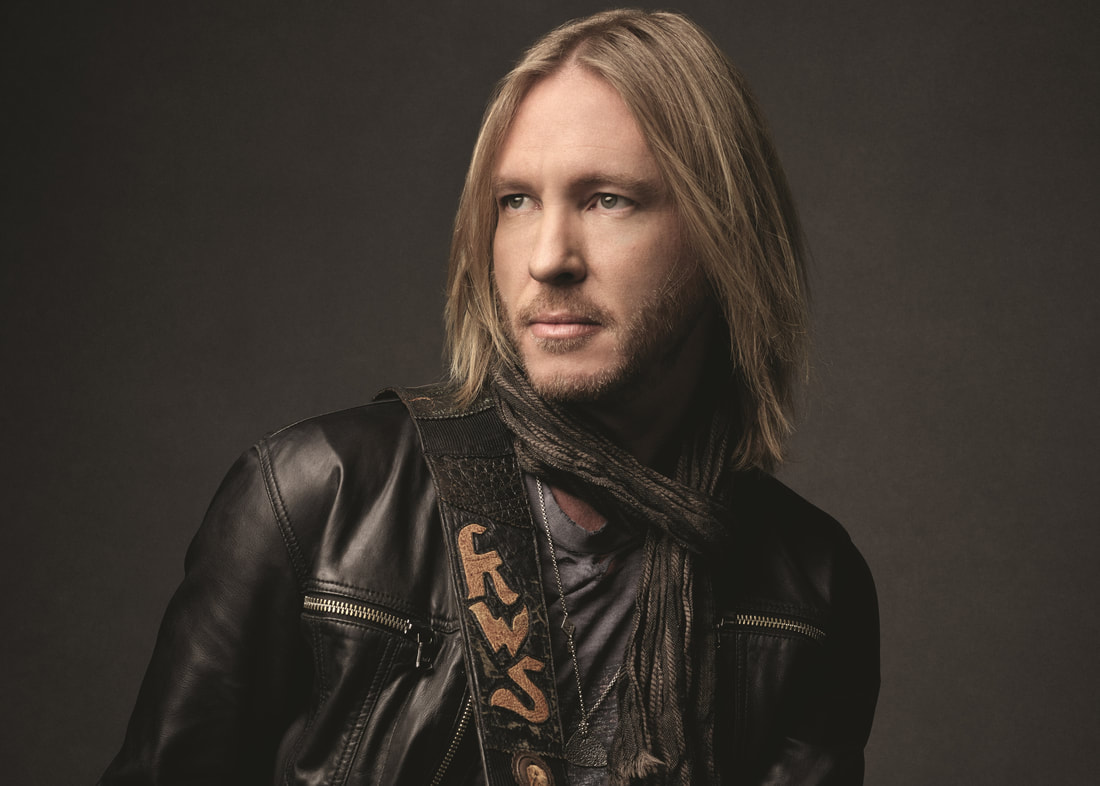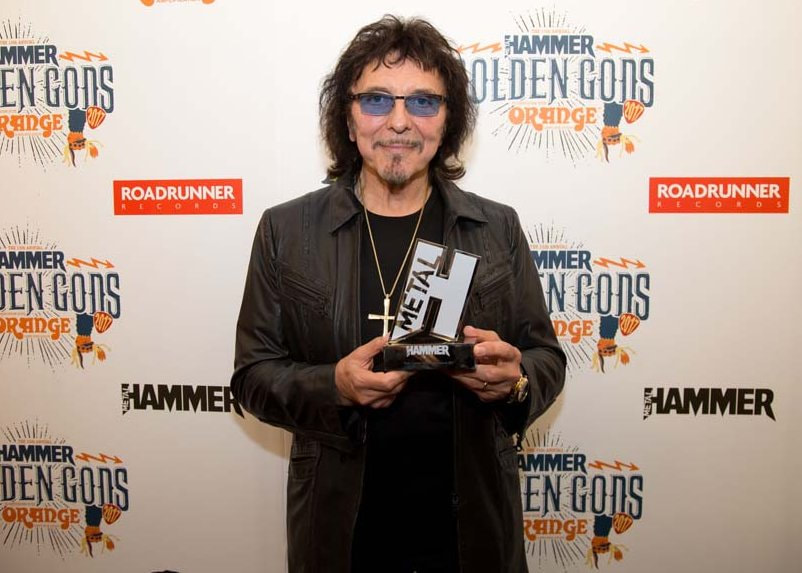|
As co-leader of Heart, Ann Wilson has had a career spanning almost five decades. A Rock and Roll Hall of Fame inductee with 35 million album sales, the Seattle-based musician has little left to prove. All of which makes “Fierce Bliss”, her latest solo release all the more remarkable. “It’s only challenging because people need to be convinced that they can enjoy my stuff without the Heart name on it”, she admits as we sit down for a chat. Talking the new album, the excess of the ‘80s, and Heart’s plans to celebrate five decades in music, we joined Ann via Zoom. Bad animal; Eamon O'Neill.
Hi Ann, how are you today?
Things are going along fine. You know, the weather’s nice, and life is good. It’s just preparing to release a record and go out on the road. I’m chatting to you here from Ireland, and it’s strange to believe that Heart have only played here twice; once in Belfast in 1987, and in Dublin in 2004. I know! Yeah, that’s right. I remember playing in Belfast in the eighties because it was pretty torn up and there was a lot of security around and tanks and things. It was scary! As I speak to you today [5th April 2022], it’s the anniversary of the passing of Layne Staley, and Kurt Cobain; what did those guys mean to you? Well, I think the Seattle music community in those years was extremely tight. Everyone knew everybody else, and there wasn’t really like a generational separation between musicians. So, it was a natural for, when we finally got off the road from the eighties and went back to Seattle to relax a little bit, we just faded into the scene and got to know a lot of those guys and women, and it was a blessed thing, because we weren’t comfortable with the big, super-high commercial eighties, and we were anxious to really shed that skin, and we did. You’re about to release ‘Fierce Bliss’, and the first thing that hits the listener is that your stunning pipes have not dimmed one iota! Well, thank you very much for saying that. A voice is like any other part of your body; it changes with time, and you have to know exactly what it needs and what it doesn’t need, and I just try my best to be kind to it. The single ‘Greed’ is genuinely my favourite track that’s been released this year; there’s the melody, it’s heavy and punchy. Ow wow! Well thank you for that. ‘Greed’ was, I think, written in a bit of a mood because I was looking around myself and reflecting on the absolute materialism of our culture, and how no one ever seems to have enough – myself included. I mean, being selfish has always been one of the things that I’ve fought against in myself, and needing so much attention, and the spotlight always had to be on me, and all that; that’s greedy stuff. So that’s what the song is about. Like when I say; “I’m an angel / I’m a lush / I want nothing / I want too much”; that’s the struggle between the greedy self and the self that’s trying to withdraw from that. The album has a wonderful contemporary production. Yeah, the whole album was recorded by a guy named Chuck Ainlay in Nashville who is a good human, and he’s got great ears, and he knows how to get that big warm, powerful, old school analogue sound on tape - even though you record analogue and then you go to digital. He knows how to do that so that it’s got that certain ‘it’ thing that old school records had. And Tom Bukovac, my guitar player, I just have all the respect in the world for, who I wrote with on this record, he came up with most of the musical ideas, especially for ‘Greed’; that whole thing for ‘Greed’, that riff and that crunch, that’s all him. I was the lyricist, but he was the machine, the muscle! Another track that really stands out is ‘Black Wing’, which has this every Led Zeppelin-esque, Eastern guitar outro solo.
Yeah, well ‘Black Wing’, that song could have been written back in the late-seventies; it comes from that same poetic fountain. It’s got the whole soft, gentle lyrical thing, and as it goes on, it gets big, you know? And then, when we got through with the song itself, the guys in the band just kind of dissolved off into this jam thing that I thought was so cool I just left it on. So, that’s a pretty retro song. I really like it. The guitars are incredible on that track. On ‘Black Wing’, the guitar was played by a guy named Tyler Boley from Seattle who’s an old friend. He’s not in a band; I just asked him to come and play on my demo, and he did, and he was all shy, but he was able to bring it. And it’s cool, because it doesn’t sound like a cookie cutter guitar player at all. There’s a number of covers on the album as well as the originals, including a colossal version of ‘Bridge of Sighs’. The guitar on that one is Kenny Wayne Shepherd. He’s a younger guy, and he just came in and he just nailed it. He was excited about playing that song when I asked him, and he just got it. I think that ‘Bridge of Sighs’ is a really powerful blues song; it’s really deep, and it’s sort of terrifying in a way, but heart-wrenching, and I just love singing it. I’ve always wanted to cover it ever since it was out by Robin Trower. It’s very satisfying. You’ve also worked with Warren Hayes of Gov’t Mule on this album. Well, Warren and I worked together first of all, back in 2017, I think it was. He contacted me and asked me to come sit in with Gov’t Mule at a festival in Virginia, which I did, and then we really hit it off, so he asked me to come and sit in with them a few more times live, and we struck up a friendship. When I did my solo album ‘Immortal’ [2018], Warren came and played on a couple of tracks, so when it came time for this record, he had an idea that he wanted to get a song, write a song that was long and epic and went through all kind of different changes, sort of like the Zeppelin ‘Rain Song’ or something like that, and so he sent me like an iPhone version of him playing guitar, and the song became ‘Gladiator’. It goes a lot of places! So Warren is very easy to work with. He’s a great human being and a fantastic guitar player. ‘Fighting For Life’ starts off really laid back, then builds into this driving, hard rock track. It’s also quite deep, lyrically. Yeah, when I wrote that song, I had just met and gotten involved with the man who would become my husband, and I wrote it about him, basically. He’s a very spiritual person, but he’s also extremely vital and energised, and can’t stand still for a second, and is always moving. He considers sleeping too much as dying, and he has to always be going, going, going, and I got the feeling when I first met him that he was just hanging onto life for dear life. He’s not sick or anything; I just meant in terms of living life to its fullest. So that’s what that song is about, but then of course when you pull focus and look at the bigger picture of that song, it could be about culture; just about, we’re moving, trying to make it through these challenging, difficult times and keep breathing. This is your third solo album, but is it still a challenge to releasing it under your own name?
Well, yeah, it’s only challenging really because people need to be convinced that they can enjoy my stuff without the Heart name on it. I think that’s the only part about this that’s really challenging, but musically, it’s been just a joy and a pleasure, and it’s taught me a lot about what I can do, and it’s led me to be a better song writer, and a better singer, I think, just doing solo stuff. I’ve actually released a number of EPs since 2015, but this is only my third full album, and it’s my first solo album where I’ve written so much. Five decades in, and the passion and the attitude in your performance in a song like ‘Greed’, is no different to that in ‘Barracuda’, for example. Right! Well, you know, when you think of it, as far as song writing and singing and everything goes, all points of Heart meet in me, so if I sing a rocker, it’s going to sound like Heart just because of that. When I write a song for a solo album, I don’t go; “well, this is going to sound way different from Heart”, or a song for Heart; “this is going to sound like Heart only”; no, I just write the songs for who they are, and where they land, they land. Going back to ‘Barracuda’, do you remember recording the song, because that vocal performance is legendary, all these years later. Yeah, I don’t remember it minute by minute of course, but I do remember being in the studio and getting that big crunchy track. Of course, in those days, I would be set up singing along with them as they cut, because we didn’t used to do the thing where, first you do the basics and then the singer comes in and does all their vocals; I was in this little iso room singing it again and again until they got it. What I remember most about ‘Barracuda’ is mixing it, because it was back in the days in the studio before automation, so if there were going to be moves made during the mix [on the faders], somebody had to make them, so each person had their own little move they were supposed to make at a certain time, and we were all hanging over the board, and there was this haze of marijuana smoke in the air because back then we used to smoke in the studio, and we’re doing this mix and everyone was reaching in, doing their little move and it was pretty fun! It was such unity. It's amazing that that track was born from such a poisonous remark. Right. It’s all about the insult and the anger of the insult that caused that song to be written. I wanted to chat about your friend Chris Cornell, and how he inducted Heart into the Rock and Roll Hall of Fame in 2013; it was a beautiful speech.
Well Chris, I didn’t know that he was going to induct us, so when it came and Chris was up there doing it, it was really emotional because it was so personal and so intimate. He was such a sweet soul; complicated, dynamic, troubled, and just to see him up there just glowing, and giving this thing was really moving to me, I remember that. And I had no idea that he even cared about our band that much. We knew each other as friends, but we never talked together about Heart before, so it was kind of a cool moment. A few year later in 2018, you paid tribute to him, singing ‘Black Hole Sun’ at the Rock and Roll Hall of Fame along with Jerry Cantrell. Yeah, it was a very poignant, I guess, closure, in a way, of the circle, for sure. It pretty much knocked the wind out of everybody who knew him, because although there were hints of it over the years that he was deeply unhappy, no one expected that. So it took a minute to absorb that loss. Your work with Jerry Cantrell goes right back to Alice in Chains’ ‘Sap’ EP in 1992. Yeah it was, yeah it was pretty early. Yeah, Jerry and I, I don’t know, there’s something about each of our personalities that can understand each other, and the generational difference doesn’t matter, the age difference doesn’t matter. There’s something about the child in me and the child in him that can play and laugh together, so the times we’ve done music together have been really great. I was really pretty honoured to be asked to sing on their record. I really didn’t understand what I was doing because, at the time because they weren’t yet the big, global phenomenon they are now; they were a local band, so yeah, amazing things happen when you least expect them. You touched on Heart’s huge success in the ‘80s earlier; what was it like going into that in 1985, with the change of image, the outside song writers etc? At first, we were really happy to go along with it. We had had two albums that we couldn’t quite find our footing, and we had a new rhythm section – Denny Carmassi [drums] from Montrose, and Mark Andes [bass] from Spirit and Fireball, and we were just breaking ourselves in, and we had ‘Passionworks’ [1983] and ‘Private Audition’ [1982], that kind of just didn’t quite do it, so we were trying to focus, and find our new voice. So when we signed to Capitol in, I think it as ’83, they were saying; “we believe in you!”, and “here, try these couple of songs and see what you sound like on them”, and of course it was ‘These Dreams’ and ‘What About Love’ and stuff like that, so at first it was great, and the album goes number one, and we have this image, and MTV is a really great platform for us. But you tired of it? I think what happened was, as it went along, the image consciousness got really stale, because it became the focus, rather than the music, and a lot of those songs that we did by other people were more like empty fishbowls or something; like, anybody could have gone into that empty thing and done the song and made it theirs. So, it didn’t really have a lot of substance, and it didn’t stand the test of time; just a few of them did; ‘These Dreams’ did, ‘Alone’ did. Yep! You became superstars during that period; was that level of fame difficult to deal with? Well I don’t know how a person can ever really be ready for that. It felt good and glorious, but at the same time, there was a balance because it was big, heavy work, and focus, twenty-four / seven with security, and you had to live in this bubble of security and go back to the hotel after the show and be locked in because there were fans roaming the halls and stuff like that. So it became a prison after a while, so yeah, there was a trade off there; you’ve got all the record sales and all the money and the fame and the glory, but then you live in this little prison. Like you said, you were ready to get off that treadmill! Yes! Been there, done that! Next year is the 50th anniversary of Heart’s formation; what have you got planned to celebrate? Yeah! Well, it’s still early days, and I can say that we have plans for it. It’s going to be a very cool event, and yeah, we’re going to make a really good thing out of the big birthday celebration, and maybe even an album, so we’ll see. It’s happening, I just can’t talk about it yet because it’s so early. Back to ‘Fierce Bliss’, and you’re hitting the road to promote it in the US. Yeah, I’m going up to Nashville in a couple of weeks to write some more and rehearse with my band – The Amazing Dawgs – and then we are going out on the road. We’re going to do, I guess it’s about fifteen or twenty shows on the west coast of the US, Mexico, Canada, and then we come back down to the south east. Will you be taking it on the road elsewhere? Later on in the year they tell us we’re coming to Europe, especially the UK, so maybe we’ll be seeing you! Ann Wilson's 'Fierce Bliss' is released on 29th April 2022. Click here to order. Like this interview? Like us on Facebook and follow us on Twitter for regular updates & more of the same. |
|
Ann Wilson
"As far as song writing and singing and everything goes, all points of Heart meet in me".
© 2016 - 2024 eonmusic.co.ukContact: [email protected]
|




